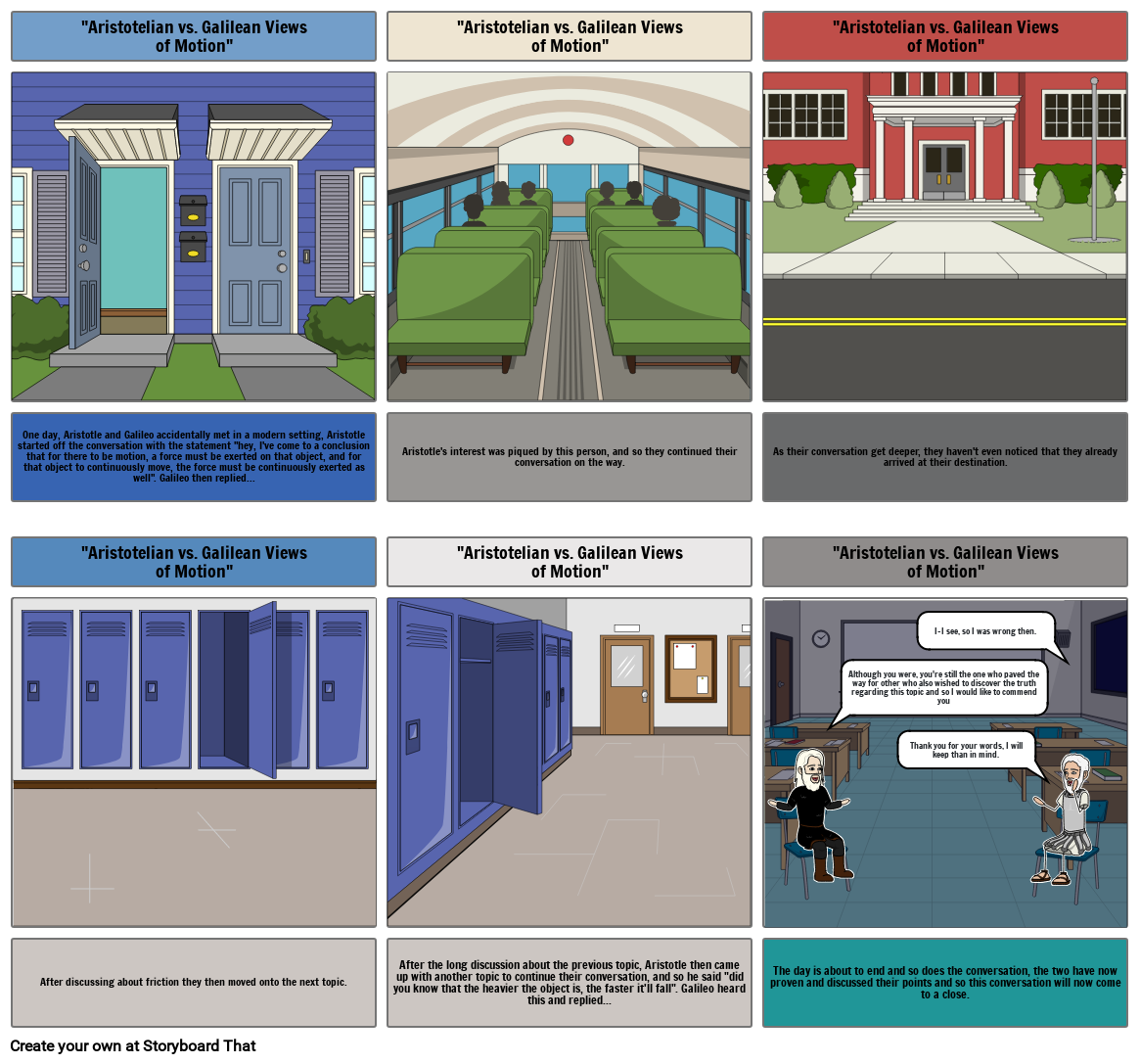21st century

Texte du Storyboard
- Aristotelian vs. Galilean Viewsof Motion
- I believe that you're only half right because there are also some cases of where there is continuous movement even though there aren't any force acting on an object.
- Hmm... tell me more.
- Aristotelian vs. Galilean Viewsof Motion
- This is where friction comes into play.
- Think about ice as an example, if it is thrown in a smooth surface it would continue to move along the surface even if no force is acting on it.
- How would you explain that then?
- Aristotelian vs. Galilean Viewsof Motion
- You see, friction is the resistance that one surface or object encounters when moving over another.
- Huh? what's that got to do with the continuous motion of the ice even without the help of any external forces?
- Friction huh..? How does that work?
- One day, Aristotle and Galileo accidentally met in a modern setting, Aristotle started off the conversation with the statement hey, I've come to a conclusion that for there to be motion, a force must be exerted on that object, and for that object to continuously move, the force must be continuously exerted as well. Galileo then replied...
- Aristotelian vs. Galilean Viewsof Motion
- G: Well.. you know that ice melts when it comes into contact with room temperature right?
- A: Yeah, obviously.
- G: So when ice melts, The ice molecules loosen up creating an almost frictionless surface. This water then acts as a lubricant resulting in smooth motion over the ice.
- Aristotle's interest was piqued by this person, and so they continued their conversation on the way.
- Aristotelian vs. Galilean Viewsof Motion
- I'm sorry my friend but that's where you're wrong
- The objects weight isn't the cause of it's acceleration when falling, its due to the gravity that's all around us
- Can you tell me why?
- As their conversation get deeper, they haven't even noticed that they already arrived at their destination.
- Aristotelian vs. Galilean Viewsof Motion
- Although you were, you're still the one who paved the way for other who also wished to discover the truth regarding this topic and so I would like to commend you
- I-I see, so I was wrong then.
- After discussing about friction they then moved onto the next topic.
- G: And with the absence of friction an object would move continuously at a constant speed along a straight line, and that tendency is called inertia.
- A: I see, so that's how it is huh.
- After the long discussion about the previous topic, Aristotle then came up with another topic to continue their conversation, and so he said did you know that the heavier the object is, the faster it'll fall. Galileo heard this and replied...
- The day is about to end and so does the conversation, the two have now proven and discussed their points and so this conversation will now come to a close.
- Thank you for your words, I will keep than in mind.
Plus de 30 millions de storyboards créés

